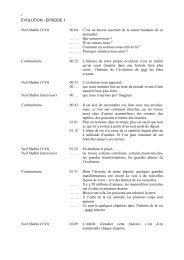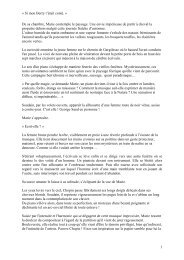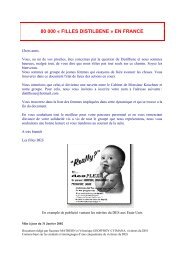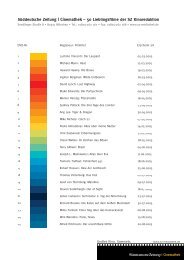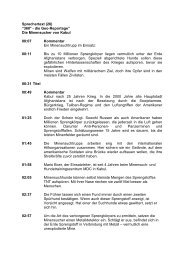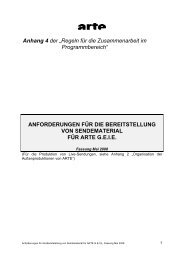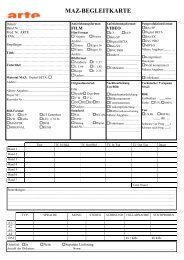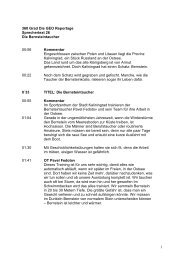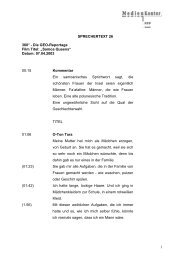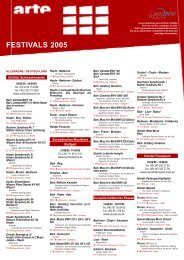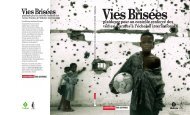POPs IN AFRICA HAZARDOUS WASTE TRADE 1980 - 2000 ... - Arte
POPs IN AFRICA HAZARDOUS WASTE TRADE 1980 - 2000 ... - Arte
POPs IN AFRICA HAZARDOUS WASTE TRADE 1980 - 2000 ... - Arte
Create successful ePaper yourself
Turn your PDF publications into a flip-book with our unique Google optimized e-Paper software.
ZIMBABWE<br />
has been successfully removed and destroyed under a joint<br />
collaborative and financial support from the Governments of the<br />
Netherlands and Germany (BMZ/GTZ) and the FAO/TCP<br />
towards the end of 1997.” 233<br />
In connection with this disposal operation, 19 000 litre DNOC<br />
from the IRLCO-CSA (see TANZANIA section of this report)<br />
were shipped to the UK for incineration.<br />
BASEL LOMÉ IV / COTONOU BAMAKO<br />
Party Signatory<br />
National Policy: The country of Zimbabwe, as a party to the Lomé Convention,<br />
totally bans waste shipments to its territory. Zimbabwe has<br />
ratified the Bamako Convention which bans the import of<br />
hazardous waste.<br />
Zimbabwe’s President, Robert Mugabe, spoke out against waste<br />
dumping in Africa before the UN disarmament session in May<br />
1988. On June 20, 1988, Zimbabwe’s semi-official newspaper,<br />
Herald, called dumping of foreign wastes in Africa, “an inhuman<br />
venture which must be stopped. African countries must unite and<br />
fight this menace through the United Nations Environment<br />
Programme.”<br />
On July 22, 1988, Zimbabwe’s Minister of Foreign Affairs,<br />
Nathan Shamuyarira, warned that his country would take stern<br />
measures against any foreign nationals or companies attempting<br />
to dump toxic wastes in Zimbabwe. Shamuyarira said that “very<br />
discreet inquiries” had been made by representatives of an Italian<br />
company about the dumping of wastes in an abandoned mine,<br />
and that his government took “appropriate pre-emptive action.”<br />
234<br />
In 1989, Zimbabwe’s Health Minister, Felix Muchemwa, called<br />
for legislation to protect African countries from being dumped on<br />
by heavily industrialized countries. Said Muchemwa: “Each of<br />
us has the responsibility of safeguarding our environment and so<br />
apart from ensuring the safe management of our own hazardous<br />
wastes, we need to take a resolute stand against transboundary<br />
movement of hazardous wastes.” 235<br />
Zimbabwe’s Labor Minister, John Nkomo, who is also president<br />
of the International Labor Organization’s (ILO) three-week<br />
annual assembly, spoke against waste trade and encouraged labor<br />
233 GTZ-Brochure <strong>2000</strong>, FAO 1999<br />
234Barbara Day, “Third World Communities Serve as Toxic Dumps,” Guardian (U.S.), June 22, 1988; Reuters News Reports, June 20, 1988; Zimbabwean News Agency via BBC<br />
Monitoring Service, July 25, 1988.<br />
235Xinhua English Language News Service, February 1, 1989.<br />
116



